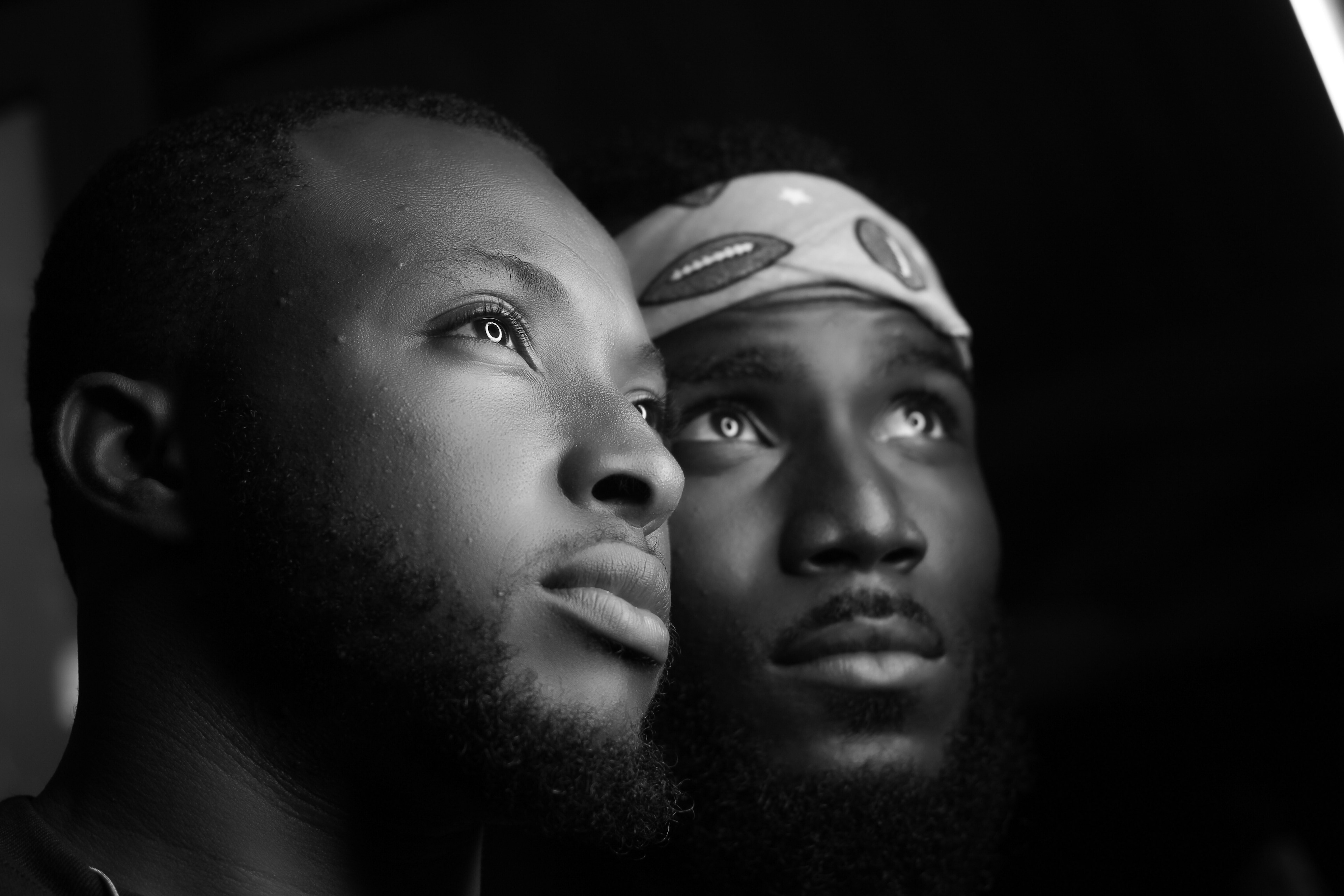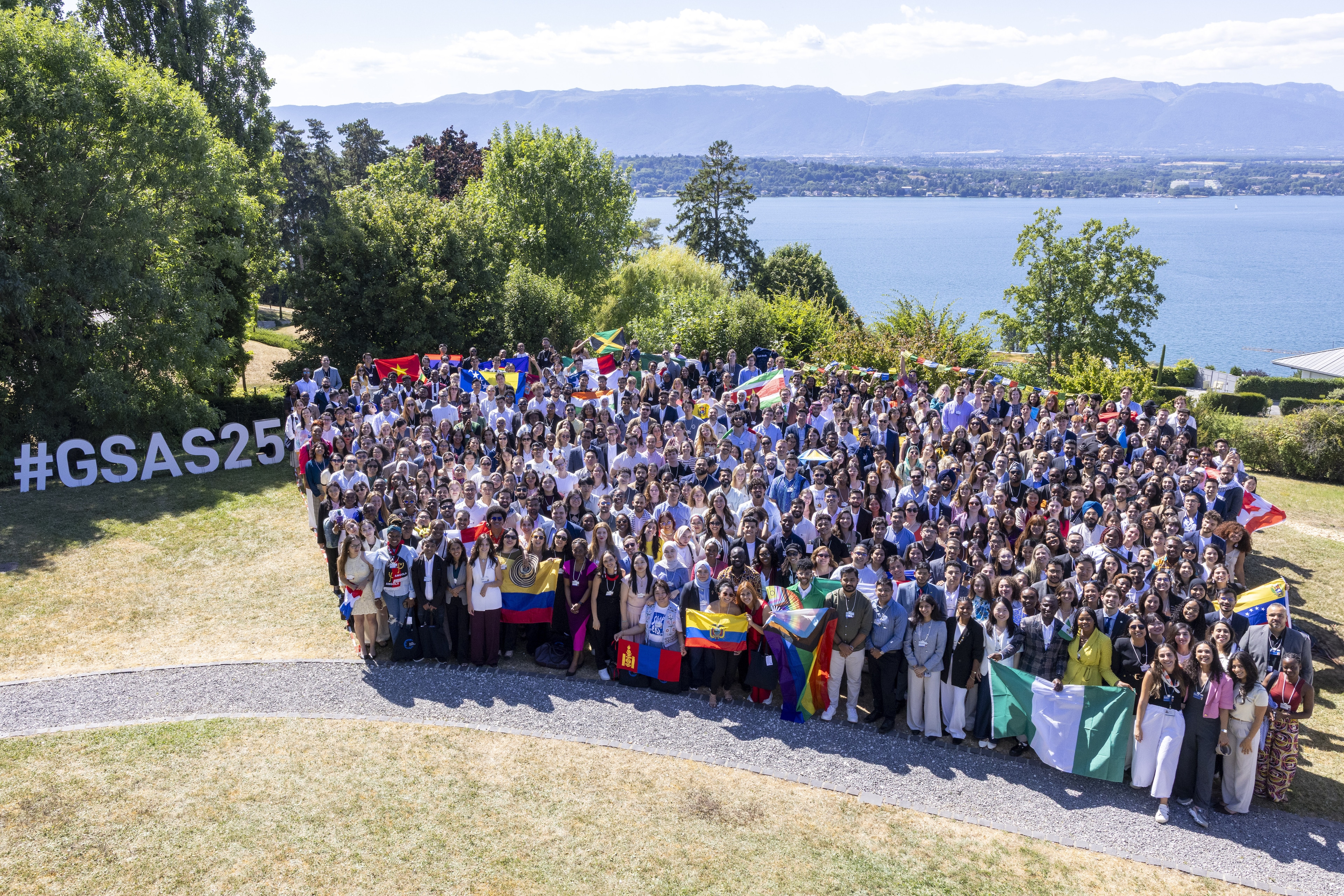I accidentally went viral on TikTok. I learned we failed our youngest generation.

The internet can be a toxic environment for teens – but are older generations to blame?
Image: REUTERS/Dado Ruvic
Stay up to date:
Digital Communications
It’s 7:05 AM. I’m waiting to board a flight, coffee in hand – but I’m filled with dread. I’ve never understood why people make a line before the flight allows passengers to board the plane, especially if everyone has a ticket and, therefore, a guaranteed seat. I stare at the line as I see my business partner make her way to the end of it. Incorrigible.
I grab my cellphone, open TikTok and record a 15-second clip questioning human behavior. I caption it: “Stop waiting in line to get on a plane!” and post my complaint in the social media abyss.
This was only the beginning.
Since the notifications on my phone are disabled, I forgot about it, quite frankly. A new city and a couple hours later, I opened the app and see my 15-second complaint had almost 15,000 views and all sorts of comments. I guess I had gone viral on TikTok – but what does that even mean?
Founded in 2014 by Alex Zhu and Lulu Yang under the name Music.ly, TikTok originally started as a lip-syncing app. Yes, you read that right. In 2017, the company was acquired for $1 billion by Beijing-based media and tech company ByteDance. The company merged Music.ly with their own very similar app, TikTok, and relaunched it as a new app for making short videos.
Soon after the merger, TikTok absorbed Music.ly’s content and users, and it took off. In less than three years, TikTok garnered up to 500 million users in 155 countries and 75 different languages, and was downloaded 1.5 billion times in 2019. The amount of data collected by the app is the main reason why the US banned the use of it for its military…but that’s a topic for another conversation.
I joined TikTok two months prior to going viral, for research. As a millennial screenwriter working on a blockbuster comedy geared toward centennials, it seemed like a good way to get to know them in a non-invasive way. At first, I started uploading videos of quick parodies, trying to test out what kind of humor they appreciate.
If I’m being honest, the app is very confusing for a creator. As a viewer, however, it’s awesome. There’s no need to follow anyone, although you can if you’d like. As soon as you open the app, a video awaits. Slide up and get another one. And another one. This makes the app addictive. Most users spend an hour on the app daily – and while that might not seem a lot by today’s standards, keep in mind each video is 15 seconds long, with some even shorter. One week into using the app, I couldn't tell you why or how any video gets featured on the “For You” page – and three months later, I still can’t.
You’ll find a range of videos, from political or social parodies to teens doing their makeup or showing off their outfits, to more toxic ones, in which teens bully or mock other teens for a laugh. The thing the videos have in common is that they’re all created by very young teens. According to stats, 41% of users are between the ages of 16 and 24.
Back to my own viral video.
I checked the comments. A few commenters agreed with me on airport lines, but the majority did not. But they didn’t simply disagree – they called me idiotic, or uncultured (to put it more appropriately). One comment even criticized the shape of my teeth. I have no idea what that had to do with airport lines, but the commenter seems to have been triggered by them.
These comments were familiar. I’ve seen them on Twitter many times and on Facebook every time I post something political. But it was odd to see 16-year-olds commenting in this way. Centennials are more laid-back, right? They are self-aware and know so much more about society than my generation at their age. They are the Greta Thunbergs, they created the March for Our Lives. They are the first generation to grow up with the internet and the full-on switch to the Fourth Industrial Revolution. These hateful comments must be learned behavior.
Wait a minute – is this what we taught them?
What is the World Economic Forum doing about improving online safety?
Millennials were the first generation to dictate the conduct of online behavior. It’s not that other generations didn’t contribute, but millennials were the early adopters of most, if not all, social media platforms and online interactions. Older generations are responsible for the trolls, the influencers and the fake news. We made hate the automatic response to adversity, and our lack of tolerance stopped any kind of dialogue that would lead to progress. And the younger generations took notes. We failed them.
Does this mean we all must create TikTok accounts and be nice to centennials? No, not really. But if we want to solve any of the burning issues, we need to set an example and focus on what we have in common, not how we’re different. Having the last word does not make you the wisest person in the room – but taking the time to understand our differences and accepting others’ opinions might.
I replied to every single comment on my TikTok video, with humor, of course. Then, with 30,000 views and 15 seconds of fame, I put my airport opinions to rest. If anything, I learned an important lesson on why hate should not be the automatic response to a different point of view – and why we need to change this behavior in ourselves to set the example for the youngest generations.
Don't miss any update on this topic
Create a free account and access your personalized content collection with our latest publications and analyses.
License and Republishing
World Economic Forum articles may be republished in accordance with the Creative Commons Attribution-NonCommercial-NoDerivatives 4.0 International Public License, and in accordance with our Terms of Use.
The views expressed in this article are those of the author alone and not the World Economic Forum.
Forum Stories newsletter
Bringing you weekly curated insights and analysis on the global issues that matter.
More on Youth PerspectivesSee all
Antara Choudhury and Vivin Rajasekharan Nair
August 14, 2025
Natalie Pierce
August 12, 2025
Murchana Roychoudhury and Saurabh Shah
August 12, 2025
Rawan bint Najeeb Tawfeeqi
August 11, 2025
Sakshee Singh and Hélène Colin
August 4, 2025
Anurit Kanti
July 15, 2025







